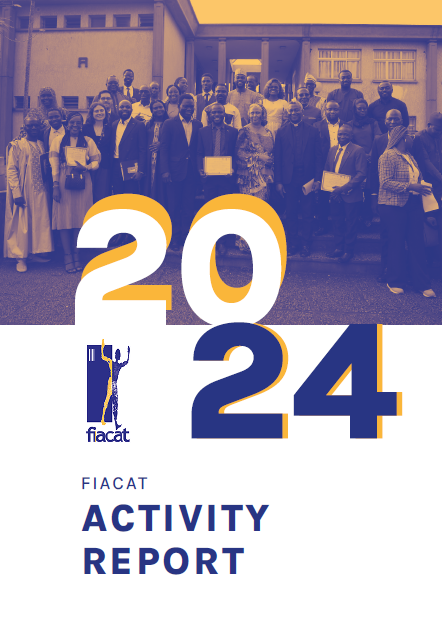PRESS RELEASE
Decongestion of Cameroonian prisons: a presidential decree too restrictive
Yaoundé, Paris, 23rd April 2020 - In response to the coronavirus situation, a decree to commute death sentences and remit other sentences has been issued by the President of the Republic of Cameroon. ACAT Cameroon and FIACAT question the effectiveness of this measure due to its excessively limited scope.
Presidential decree N°2020/193 of 15 April 2020 to commute and remit sentences grants a presidential pardon to certain detainees, aimed at avoiding a potential disaster in the overcrowded prisons where the risk of the spread of Covid-19 is high. ACAT Cameroon and FIACAT welcome these measures taken to decongestion Cameroonian prisons. However, an in-depth analysis of the decree shows that the latter is not sufficient to tackle this health crisis.
Cameroonian prisons count a total of 17 915 available places. However, in 2017, there were 30 701 prisoners, representing an occupancy rate of over 171%. This situation is particularly alarming at a time when the current epidemic requires at the very least a "social distancing".
More than 70% of persons deprived of their liberty throughout the country are in pre-trial detention. However, according to article 1 of the presidential decree, the measure is aimed exclusively at persons who have been definitively tried and sentenced, thus excluding pre-trial detainees.
Moreover, more than 60% of the persons in detention are detained for offences that prevent them from benefiting from a commutation or remission of their sentence, according to article 4 of the decree. Thus, more than 50% of the detainees definitively convicted will remain in prison. Also, among those sentenced to death, more than a third of them were charged for terrorism-related offences since 2015, which are excluded from the measures taken by the decree.
As an example, as of 20th April 2020, 3 473 persons were being held in Douala Central Prison. 2 385 were in pre-trial detention, meaning that 69% of the detainees could not benefit from the measures set out by the decree. Of the 770 persons definitively sentenced and therefore concerned by these measures, 608 detainees were released, representing only 17.5% of the prisoners. In the Yaounde Central Prison, the figures are even more eloquent since only 361 detainees were released among the 4,000 prisoners, representing only 9% of the prison population. These figures show that the provisions made by the presidential decree are far from sufficient to combat prison overcrowding in Cameroon.
Considering the health crisis affecting Cameroon and the world as a whole, and considering also the prisons’ overcrowding, ACAT Cameroon and FIACAT call on the Cameroonian authorities to:
- allow, in the short term, more prisoners to benefit from presidential pardons, especially pre-trial detainees who represent 70% of the prison population;
- stop, in the long term, the systematic use of pre-trial detention in order to combat prison overcrowding and improve conditions of detention.
Press contacts:
- ACAT CAMEROUN – Mr. Bissay Maxime, bismax75@yahoo.com
- FIACAT – Ms. Prugnard Xavière, x.prugnard@fiacat.org




